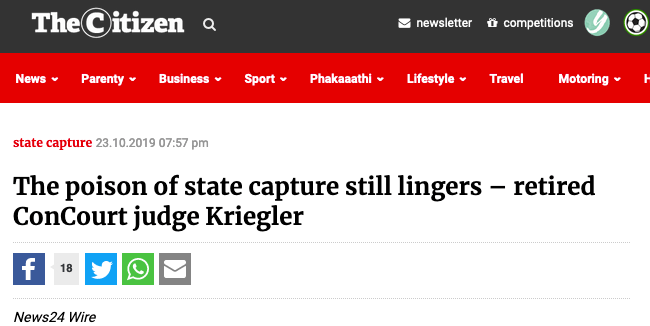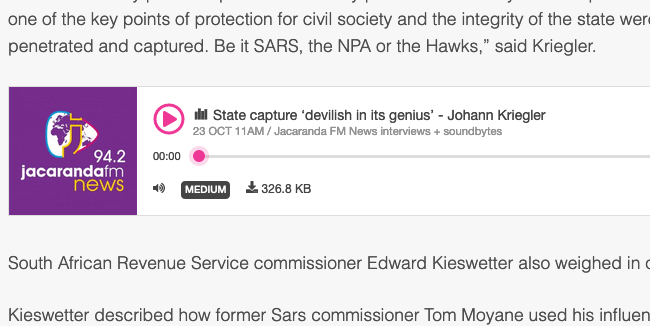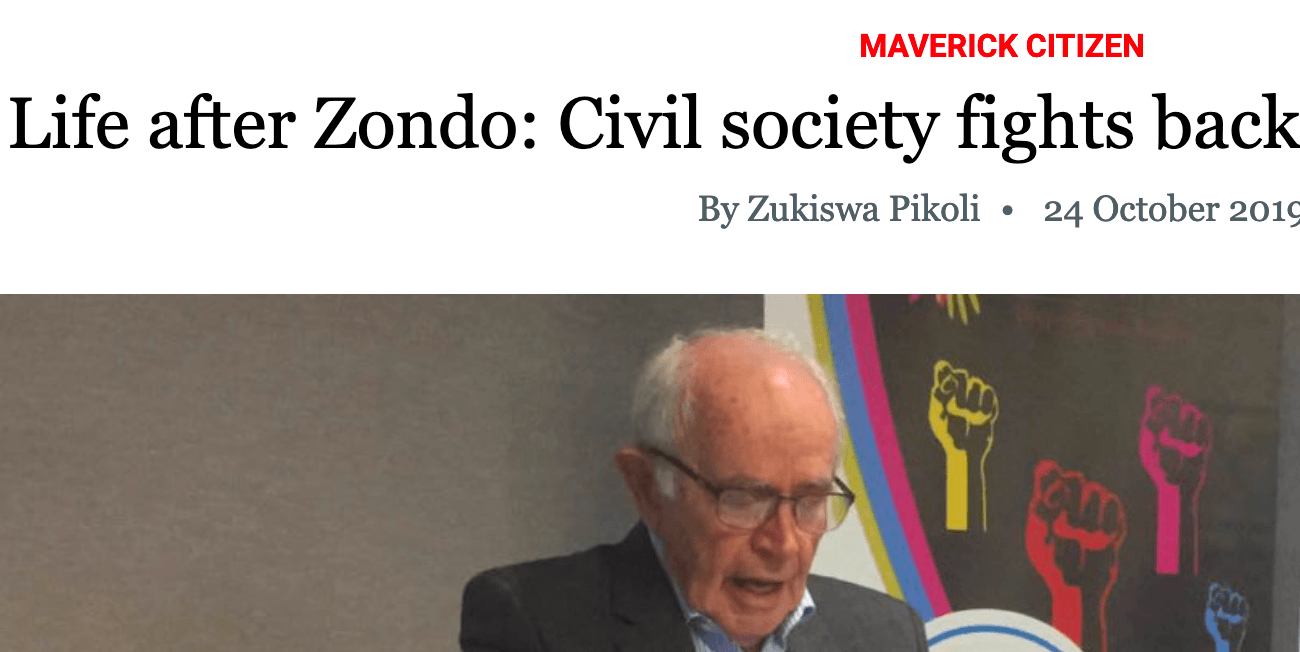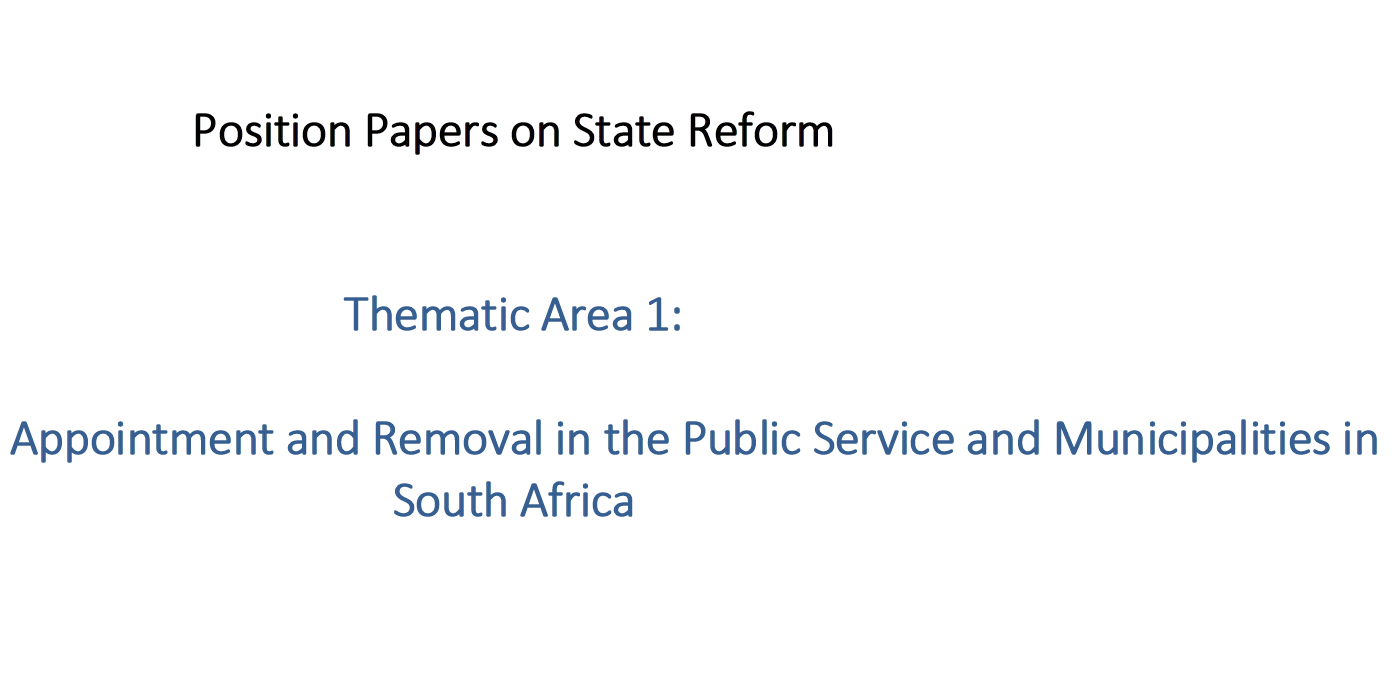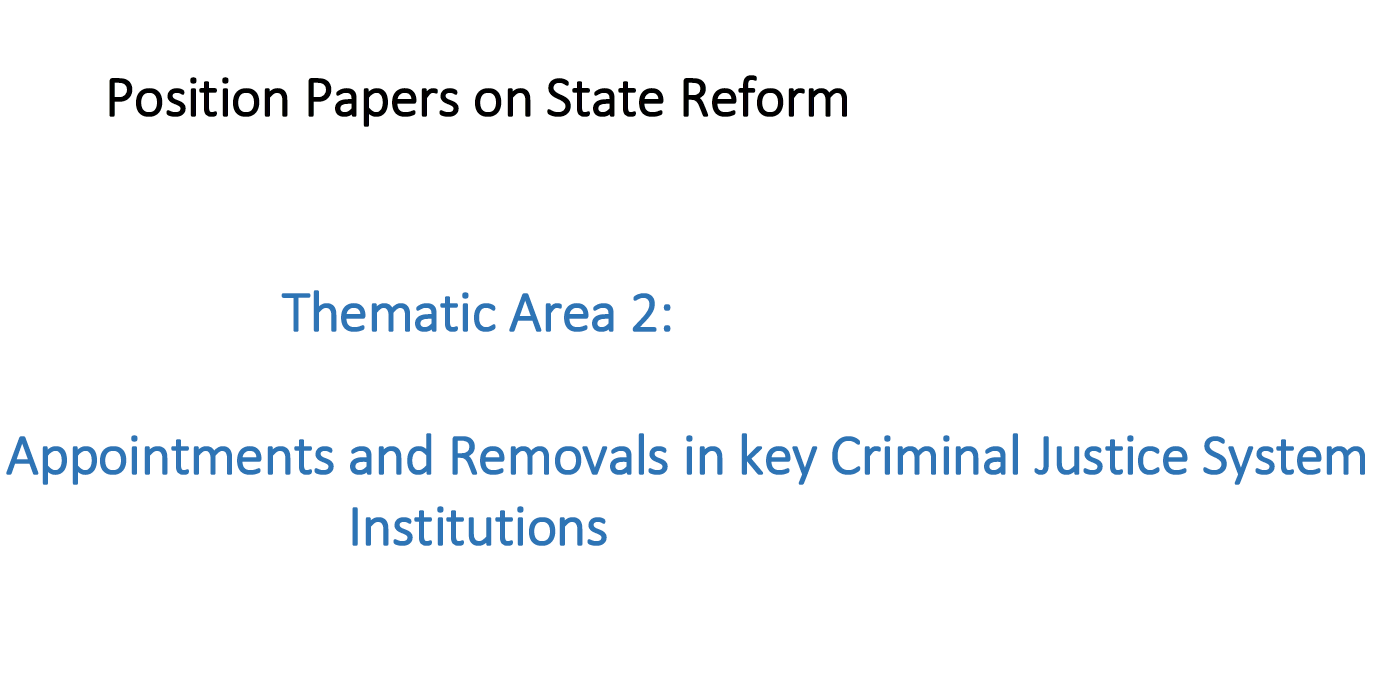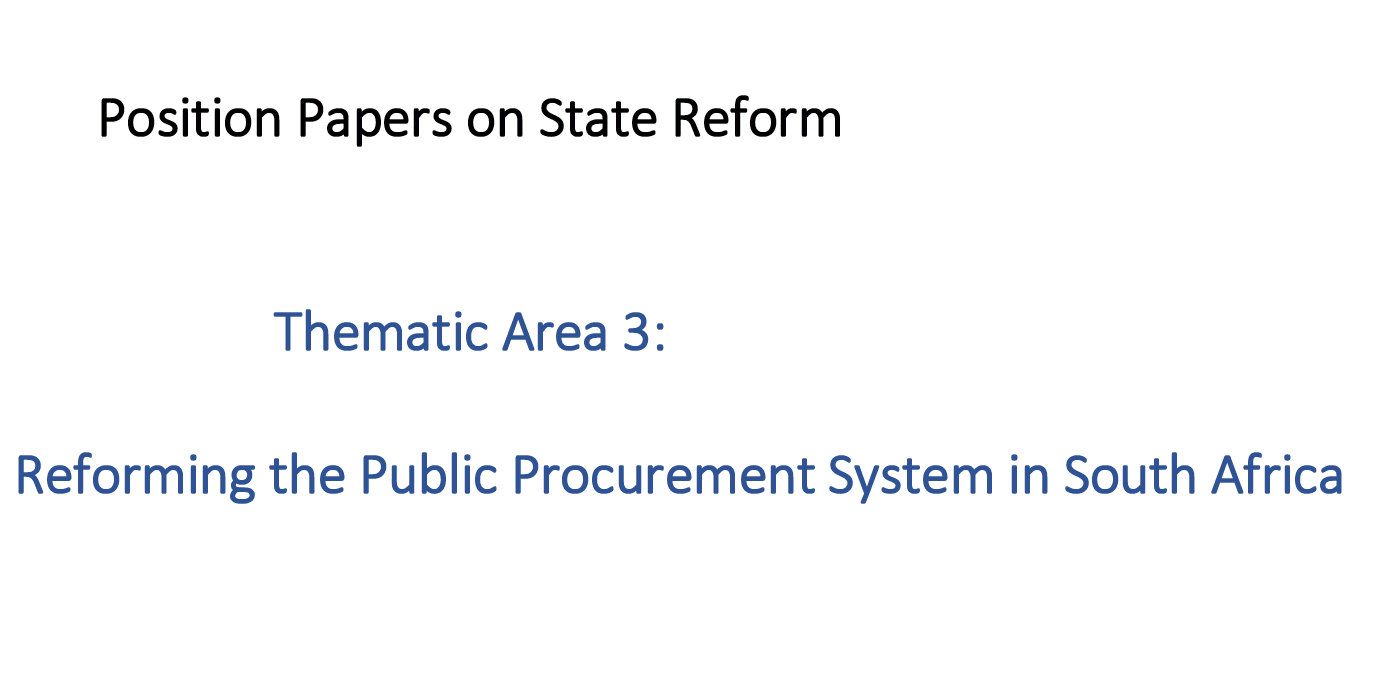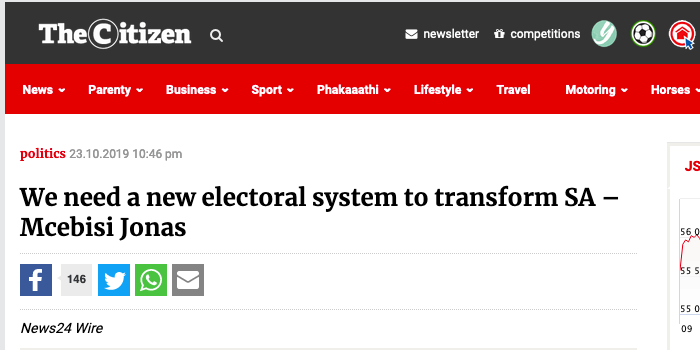Welcome
“We will not be silenced”, stated Ahmed Kathrada Foundation (AKF) Board Chair Derek Hanekom, opening a day-long civil society engagement, hosted by PARI and AKF on 23 October. The conference, Defeating State Capture and Rebuilding The State, attracted a full house of civil society organisations, interested individuals and media to discuss a way forward for civil society to actively fight for a better state. Highlights on the programme included such veterans as ex-Justice Johann Kriegler, former Deputy Minister of Finance Mcebisi Jonas, SARS Commissioner Edward Kieswetter, as well as public servants like the Deputy Minister of Justice and Constitutional Development John Jeffery and SALGA CEO Xolile George, among a host of civil society’s leading activists.
Opening Address by Johann Kriegler
The opening address was given by retired Con Court Judge Johann Kriegler who said that state capture is real and more pervasive than what we see at the national level – it goes all the way down to local government. He painted complexity of state capture, saying that “an acupuncturist could not have more accurately identified the pressure points on the body politic” in order to enable it.
“The poison that is state capture lingers on,” he warned. “Not all corrupt individuals have been removed, and those with good intentions have become demoralized.”
The ex-Justice spoke of a many-headed hydra monster that cannot be defeated by institutional tinkering but requires collective action, because “ill-doers will fight tooth and nail to protect their interests”.
Finally, he warned civil society not to leave the cleaning to the judiciary alone, as state capture is a political beast. Judges should not impair their images and denude their integrity by being seen as political agents. Ex-Judge Kriegler, like many speakers through the day, called for honesty, truth and moral standing in the public service, and a rehabilitation of public institutions.
PIC, Nugent and Zondo Commissions
A panel discussion on the PIC and Nugent Commissions, and evidence from the Zondo Commission revealed stirring insights. SARS Commissioner Edward Kieswetter painted a bleak picture of the state of the revenue service, reiterating that the capture of SARS is real despite the presence of denialists in government. He said the organization was destroyed in terms of human trust, credibility and effectiveness. He echoed retired judge Robert Nugent’s sentiment that “it was a massive failure of governance”.
“Within SARS, the rot is deep and often invisible,” said Kieswetter.
The Commissioner has his work cut out for him to rebuild the massive organization. He told the conference that six revenue recovery projects have been identified and restructuring is underway. This includes rehiring senior officials and rooting out corrupt individuals. He spoke of steps to change the institutional culture, noting that patriarchal harassment must be held accountable.
Proposals for State Reform
The Public Affairs Research Institute (PARI) presented a brief tour of three position papers on state reform proposals.
Wits University’s Jonathan Klaaren presented the paper on public procurement, naming the lack of professionalization, political interference, lack of enforcement, a fragmented legal regime and excessive rigidity in processes as the causes of weaknesses in the procurement system.
Dr Florencia Belvedere on the criminal justice paper said that political interference has undermined the rule of law and trust in the justice system, and that impunity has been allowed to go unchecked.
Dr Tracy Ledger presented the need to reform appointment and dismissal processes of individuals in key institutions.
The papers are a collaborative work with academics, civil society organisations and interested individuals who have and continue to shape the proposals so that they can represent a collective voice. The latest drafts are available at the links below.
PARI’s Thokozani Chilenga-Butao facilitated a panel discussion with Deputy Minister of Justice and Constitutional Development John Jeffery, and SALGA CEO Xolile George. The public servants gave valuable inputs into the state reform proposals.
“Less than 50% of municipalities have implemented consequence management and accountability,” said the SALGA Head. “This is a weakness at municipal level.”
He voiced concern about delinquent councillors who get “recycled” and stressed the importance of community participation being more integrated across municipal government. He also suggested that remuneration levels be linked to performance of the municipality rather than an individual, to incentivize effectiveness.
Deputy Minister Jeffery talked about transparency in appointment processes and the nuances of the parliamentary role in removals/dismissals of senior public officials. He also raised important questions to the reform proposals, such as, “If appointments require a panel, who appoints the panels?”
Keynote Address by Mcebisi Jonas
The keynote address was given by former Deputy Minister of Finance Mcebisi Jonas, who was emphatic that the state capture project has deepened, particularly at local government level. He spoke about a serious and deep fight back against reform that is only aided by a media who does not fully understand the extent of it and a public who is disenchanted by the reform narrative.
“Civil society must drive a new national consensus,” he said. Jonas urged civil society to build an inclusive economy that puts forward an entrepreneurial class. He also called for presidential accountability.
The former deputy minister insisted that transparent appointments to state intelligence and security structures are needed. He cited the example of the recent xenophobic attacks, which show how compromised people’s access to information and security currently is.
“We need a strong and independent bureaucracy, capable of delivering, in order to ensure the functionality of the state.” He went on to say that civil society should regard state reform as a long-term project and set up “cells of execution” to reach short term goals within that project.
He concluded by saying that the media must not be used for disinformation and deflecting the citizen’s interests.
“The fight back is real and requires vigilance and understanding. We can only win if we are organised and clear about what our agenda is.”


